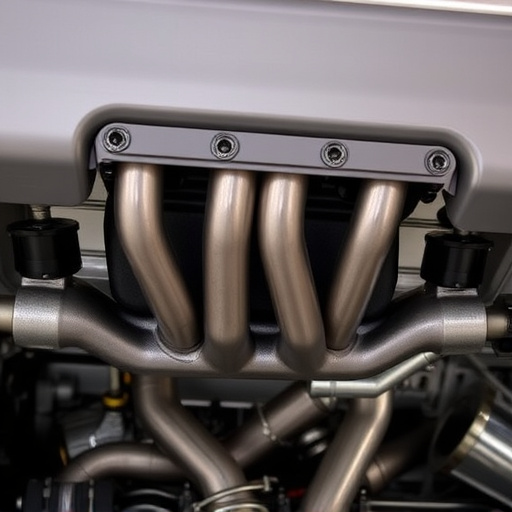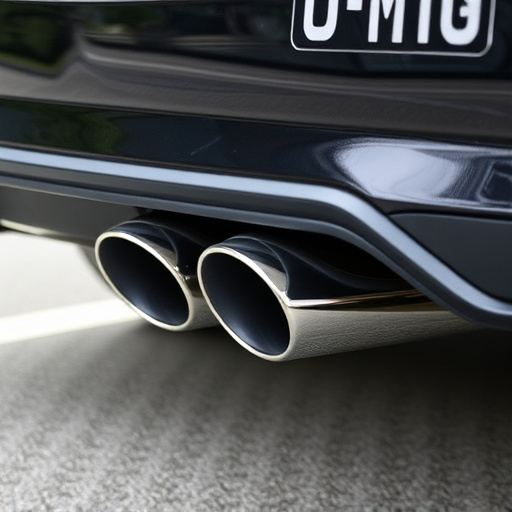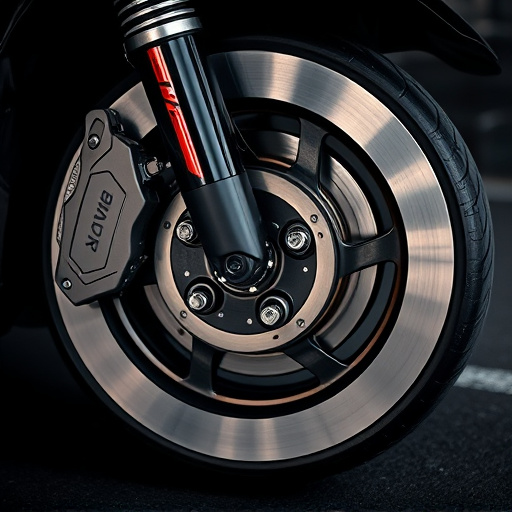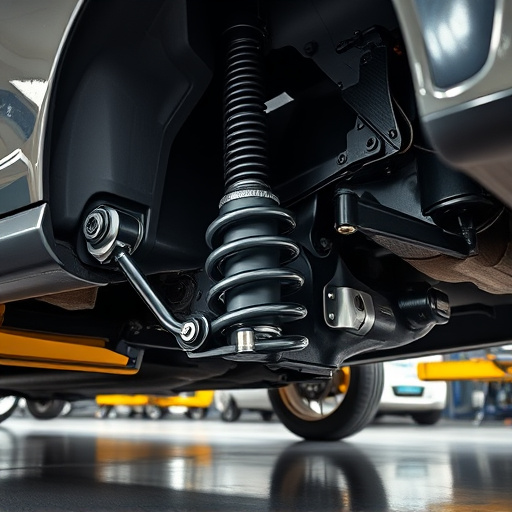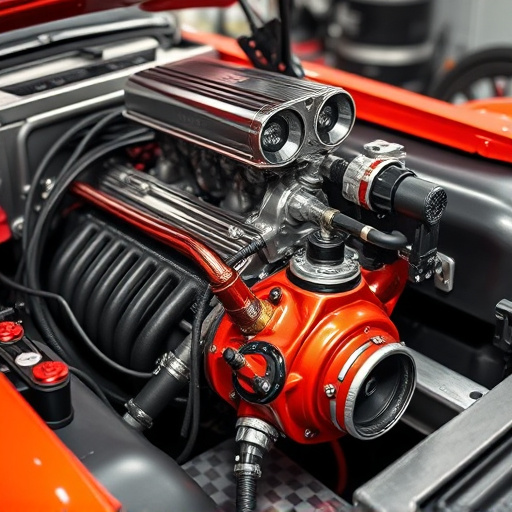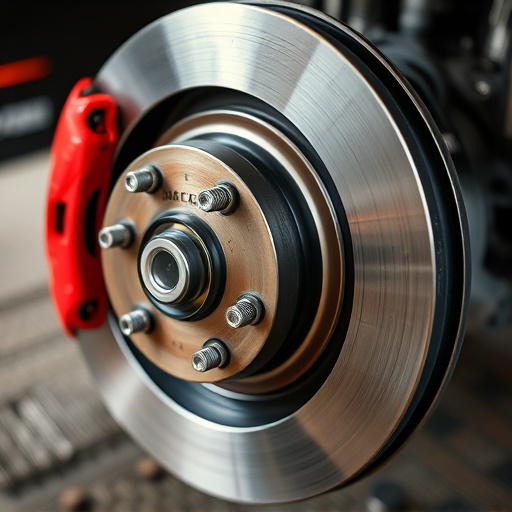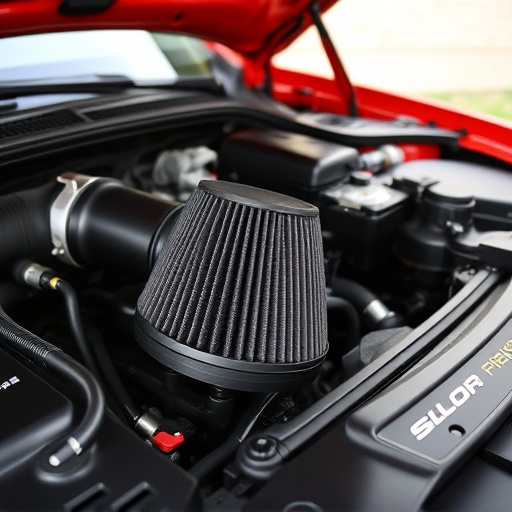Exhaust systems for cars play a crucial role in enhancing engine performance, leading to increased acceleration and top speeds. By efficiently expelling burnt gases from the combustion chamber, these systems reduce backpressure, allowing better air intake and combustion. Modern exhausts also include noise-reducing tech, contributing to improved vehicle efficiency while minimizing environmental impact.
Exhaust systems, often overlooked, play a pivotal role in enhancing a car’s performance. These systems aren’t just about muffling noise; they are meticulously designed to improve acceleration and top speed. By understanding how exhaust systems function, we uncover their crucial role in engine performance optimization. This article delves into the science behind this technology, revealing how exhaust systems for cars can significantly boost your vehicle’s capabilities on the road.
- Understanding Exhaust Systems: Their Role and Design
- How Exhausts Enhance Engine Performance
- The Science Behind Improved Acceleration and Speed
Understanding Exhaust Systems: Their Role and Design
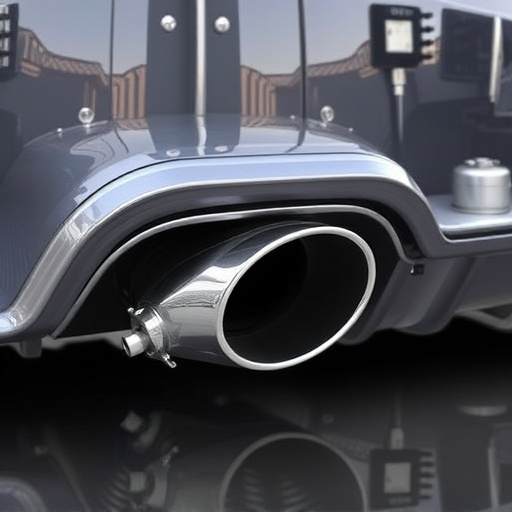
Exhaust systems for cars are a crucial component that often goes unnoticed until its absence becomes apparent. These systems serve a vital role in enhancing a vehicle’s performance, particularly when it comes to acceleration and speed. Understanding their design and function is key to appreciating their impact on overall car performance.
At the heart of an exhaust system lies a series of components designed to facilitate the efficient expulsion of burnt gases from the engine. This process begins within the combustion chamber where fuel and air mix and ignite, producing hot gases that exert pressure on the piston. The exhaust system channels these gases away from the engine, allowing for smoother and more powerful contractions. Key elements include the catalytic converter, which reduces harmful emissions, mufflers that muffle noise, and pipes that direct gases to the rear of the vehicle. Additionally, performance brakes and exhaust tips can be modified to further enhance exhaust flow, ultimately contributing to improved acceleration and top speed.
How Exhausts Enhance Engine Performance
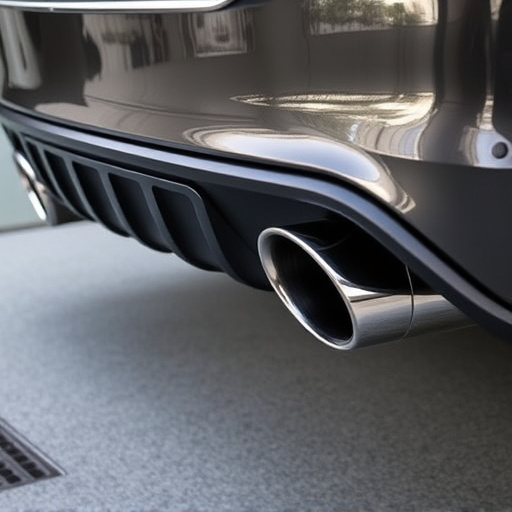
Exhaust systems play a pivotal role in enhancing engine performance, which directly contributes to improved acceleration and speed. By efficiently removing burnt gases from the combustion chamber, exhaust systems facilitate a smoother and faster flow of exhaust gases. This reduces backpressure in the engine, allowing for better air intake and combustion efficiency. In simpler terms, well-designed exhaust systems enable the engine to breathe more easily, leading to increased power output.
Additionally, modern exhaust systems often incorporate advanced components like catalytic converters and mufflers that not only minimize noise pollution but also optimize gas exchange. The combination of reduced backpressure and efficient gas conversion results in a powerful synergy. This is particularly noticeable when compared to vehicles with poorly designed or clogged exhaust systems, where the engine struggles to expel exhaust gases, leading to reduced performance. Thus, investing in high-quality exhaust systems for cars can significantly improve both acceleration and overall driving speed.
The Science Behind Improved Acceleration and Speed

The science behind exhaust systems’ impact on a car’s acceleration and speed lies in their ability to optimize engine performance. Exhaust systems for cars facilitate the efficient expulsion of gases from the combustion chamber, allowing for smoother and faster movement of air and fuel mixture. This process begins with the ignition of the spark plug, which sets off a chain reaction that produces high-pressure gases. The exhaust system, consisting of headers, pipes, and mufflers (exhaust mufflers), plays a crucial role in channeling these gases out of the engine.
By reducing backpressure, exhaust systems lower the resistance against which the engine must work, leading to improved combustion efficiency. This is where the interplay with other components becomes significant. For instance, efficient exhaust systems complement the functionality of intake components by ensuring that the engine receives a steady supply of clean air, enhancing its ability to produce more power and resulting in increased acceleration and top speed—a true game-changer for any vehicle’s performance, especially when combined with well-maintained brake pads.
Exhaust systems play a vital role in enhancing the performance of cars, as evidenced by their ability to improve acceleration and speed. By understanding the science behind these systems—their design, impact on engine performance, and resulting benefits—car enthusiasts can appreciate the importance of efficient exhaust systems for cars. Investing in high-quality exhaust upgrades can not only revolutionize a vehicle’s driving experience but also deliver noticeable improvements in its overall performance.






